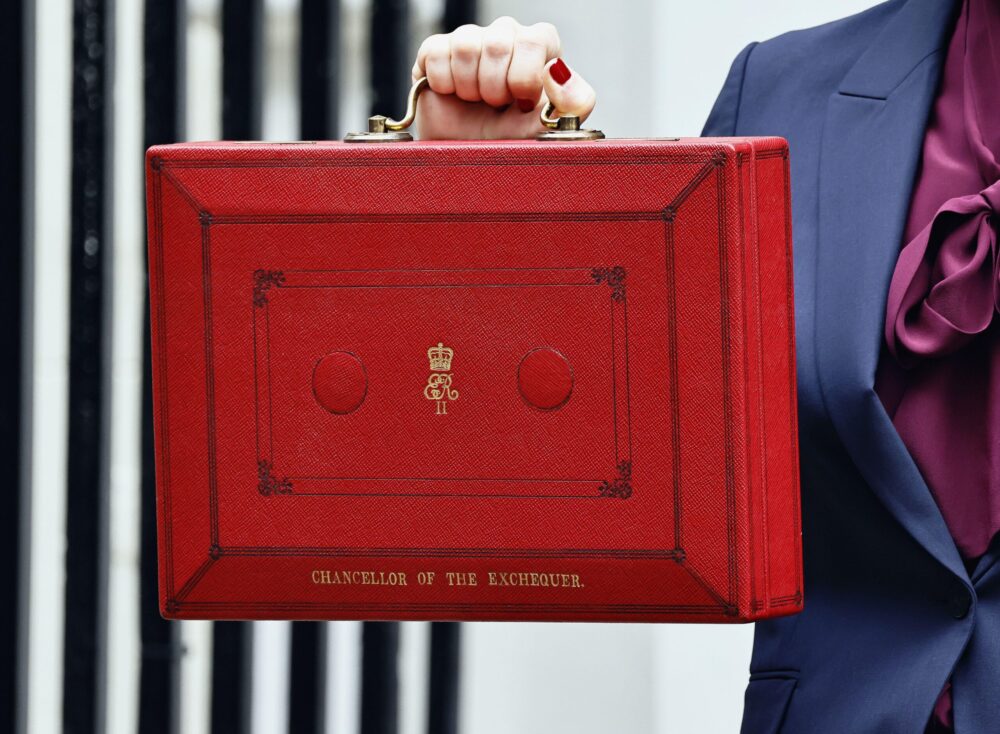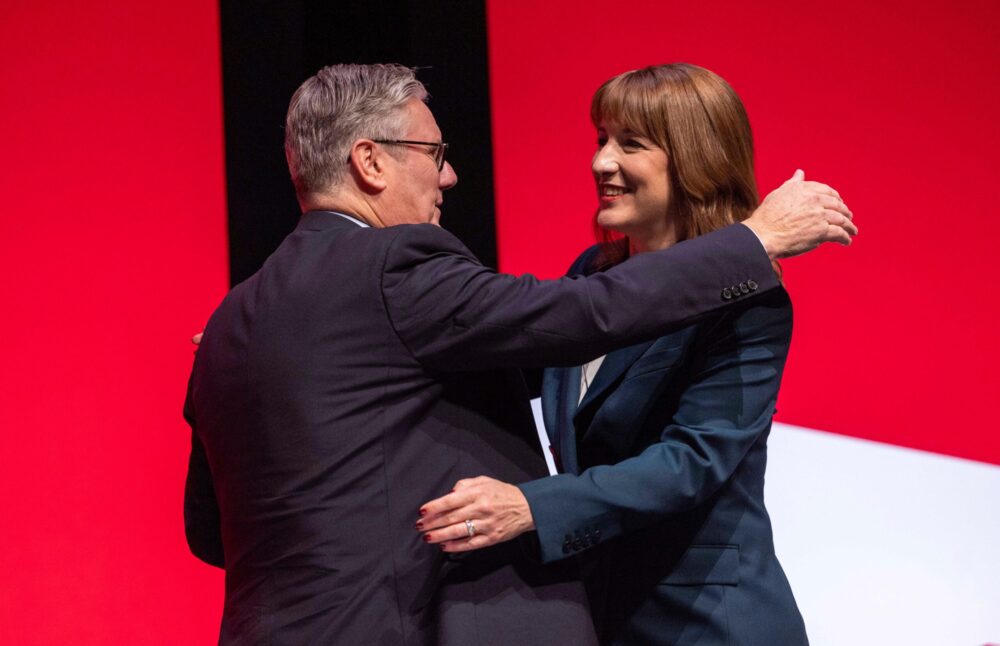
In our latest round of focus groups – in Portsmouth, Guildford, Clacton and Colchester – we heard separately from voters who had switched last year from the Conservatives to Labour, the Lib Dems or Reform, as well as more habitual Labour voters. Between them, our eight groups – one of men and one of women in each destination – came up with four positive things about the Labour government so far: the decisive response to last summer’s riots, the pay rise for teachers (among teachers), the higher minimum wage (though this worried small business people) and the fact that they had got rid of the Tories.
Yes you got a bad hand, but you asked for it. Deal with it or move on and let someone else have a go
The complaints were rather more numerous: the winter fuel allowance cuts, uncontrolled immigration, freed prisoners, two-tier policing, the Chagos Islands (“why wouldn’t you want to give them away and pay for the privilege? Good old Labour Party”), overseas aid (“I’m all for helping, but you can’t drive down the road without losing a wheel in a pothole. We’re going to send them a great deal of money while we’ve got pensioners freezing in this country”) and – especially – tax. Inheritance tax, council tax, National Insurance and rising taxes on pensions were all mentioned; not only that, “they’re considering removing the tax allowance on ISAs” and “If you’ve been using eBay you might get a visit from the HMRC.” Every time Rachel Reeves appeared on TV “it’s about what she’s taking off us next.”
While more regular Labour voters were still prepared to give it time and see what happened, many others were increasingly unconvinced by attempts to blame the previous government for unpopular decisions: “They say there’s a £20 billion black hole, but they’ve increased spending way above what was planned;” “They all do the blame game. Yes you got a bad hand, but you asked for it. Deal with it, make it better, or move on and let someone else have a go;” “Did you see when Trump was signing his orders? This is gonna happen, this is gonna happen, not in ten months’ time, as of today. And Starmer is like, well, I’ve only been here for seven months, we’re just getting warmed up.”; Some noted ruefully that change seems to take time, unless it’s change for the worse.
Are we at the point where we’re better off doing nothing?
In all our locations, people noted that the tax rises – particularly employers’ National Insurance – seemed at odds with the government’s supposed pursuit of economic growth. Many working in small businesses said their firms were already feeling the effects: “Our accountant worked out that of every pound our salon generates, 43p goes to the government in some form of tax. It doesn’t leave a lot to pay your overheads or our staff. Many a month my husband and I go without a salary to keep the business afloat;” “All you hear about is the next business going bust. One of the supermarkets is cutting thousands of jobs and that’s connected;” “The National Insurance rise means people can’t afford to keep their staff, so they’re making people redundant. So more people are back with nothing.”
As well as the immediate cost to jobs, people worried that rising taxes would erode longer-term incentives to work and save – especially when combined with the apparently easy availability of welfare benefits: “I’m 38 but it makes me think, am I doing the right thing putting money into a pension? Are we at the point where we’re better off doing nothing?” “I’ve got two cousins who have never worked, they’re 26 and 30. They should be pushing people like. I’m working a 12-hour day so they can sit on their beds getting their PIP;” “We’re being taxed at every avenue. How do you do better for yourself? If you sell stuff on eBay, they tax you. If you buy a second home, you get taxed more. Anything you do, you want to better yourself, you’re paying them. They’re keeping the middle class where they are. What’s the incentive? What’s in it for anyone?”
Participants complained of many other things that seemed to contradict the desire for growth, from foreign aid to town centre parking charges (“and they wonder why people don’t go to the shops”). Some thought they had spotted an explanation: “The more I’ve looked into it, the more I’ve realised that most of them have only ever worked in public sector jobs. So they’ve always had a guaranteed salary whatever their productivity is. Not a single member of the cabinet has ever run a business, and I think it shows.”
We just want to work and have our wages in our pockets and pay a reasonable amount of tax and have services that actually function
Some had picked up on plans for a third runway at Heathrow and to ease planning rules for infrastructure projects. Though this prompted mixed views (“Why does it take 25 years to lay a bit of tarmac for a plane?” “It will create an awful lot more pollution in that area;” “She’s going to have some legislation so they can build on the green belt. So they won’t have the option of objecting to it”), many struggled to connect the idea to any economic benefit to themselves: ““I guess it’s so we can have more flights going in and out, basically. Or am I just being a bit thick? They don’t explain, do they?” “There’s no short-term benefit. What are the things that are going to bring the optimism back, the investment back and make people feel better right now? These things are 15 years away at least;” “It doesn’t help the normal man or woman, does it? They need to do something that will help the everyday person that isn’t, you know, rich;” “We just want to work and have our wages in our pockets and pay a reasonable amount of tax and have services that actually function.”
Why didn’t they do it while they were in?
Complaints about the scale of legal and illegal immigration and their effects on public services and local communities were not confined to our Reform voters, but came from all groups. There was some scepticism about the government’s claim to have ramped up the number of illegal migrant removals, with more than 19,000 deportations since the election, even when we showed the groups the Home Office video of migrants being boarded onto a deportation flight. A few had heard that removals were up, along with raids on businesses employing illegal migrants. While this was generally welcomed, the prevailing view was that the numbers were a drop in the ocean given the scale of the problem (“the number who have come over on boats compared to the number they’ve actually removed are poles apart”). Some doubted that very much was really happening at all: “They’re putting a little show on, aren’t they? I view that as a publicity stunt more than anything else. That’s what I thought when I saw it on the news.”
A separate video of Kemi Badenoch describing the Conservatives’ new immigration policy – including doubling the time newcomers would have to be in Britain before applying to stay indefinitely, and disqualifying those who claimed benefits or social housing – was well received, to a point. The groups thought it was well presented and had the right ideas… but “why are they saying it now? Why didn’t they do it while they were in?” “They had forever to do it. And they didn’t do it.” Still, said one, “that’s the first time I’ve seen her say anything positive worth or anything worth listening to.”
Most had heard little or nothing from the Conservatives since the election – not that they had been very eager to do so – and some were cautiously impressed with Badenoch’s first party political broadcast, in which she spoke about her background and acknowledged that the Conservative government had let people down. Many thought she was refreshingly direct and noted that she had echoed many of their own views: “She’s not like the other Conservatives, the Eton boys in their little gang. She sounds a lot more positive.” However, the dearth of trust and confidence in the Tories more widely was clear from the further reactions: “I can’t say I’m sold already but she’s definitely one to keep an eye on. She said everything we wanted to hear. I want to say I feel like I believe it but is it too good to be true?” “I liked that she said ‘we didn’t deliver what we said, we didn’t tell you what was really going on’. But again, is she just saying it, because someone’s basically written that for her;” “She might want to do all that. But unless she’s got the support of the party around her, it’s never going to work;” “It’s a positive message but can she deliver? There’s no confidence there at the moment;” “I feel like we’ve given them a chance and it’s gone.”
On the whole, the groups were doubtful that the answer lay in a pact with Reform UK. Some said they would be interested in such an alliance as an alternative to Labour at the next election, but many felt any deal would be based on tactics rather than principle and would be an admission of weakness or even defeat on the part of the Tories: “It would just be born out of circumstance. ‘We’re doing that because we want to get in, so we’ll just hold hands with Nigel’;” “There’s a bit of an obsession. I think the Tories have got their eyes more on Reform than making the current government accountable for what they’re doing;” “They should be strong enough on their own.” Some who switched to the Lib Dems in 2024 said a Tory-Reform deal would make them less likely to consider returning. Most of those who had switched to Reform were also sceptical, feeling that a pact would dilute Reform’s brand and purpose, which is to challenge the political establishment, not merge into it: “The Tories would just change their minds, as they always do. It’s nice having another party there snapping at their heels and forcing them to sit up and listen. I’d say those two videos [of the migrant removals and the new Tory policy] prove the pressure that’s coming.”
I can see her in those combat trousers with the big pockets
Finally, with this talk of airport expansion, if Nigel Farage were to go on holiday, where would he go and what would he get up to? “Benidorm, with a big sombrero and a donkey tucked under his arm;” “Oktoberfest;” “In the bar with a lot of expats. ‘Just talk louder in English’;” “He’d be in the all-you-can-eat two-star buffet. He’d get his value for money. Actually, maybe he’d be quite good with our budget.” He might have no need of an airport at all: “Clacton! That would be a holiday because he doesn’t actually live here, does he? He bought a house, but he lives in Kent.”
What about the Badenoch holiday? Few knew enough to have a view, but based on the clips we had shown them, “somewhere elegant;” “Hastings, to stop the boats coming over;” “I think she’s going camping in Devon. I can see her in those combat trousers with the big pockets and one of those utility vests and a rucksack.”
And the Starmer getaway? “Well I can’t see him in Butlin’s. It would be all-inclusive in Mauritius or the Maldives, hobnobbing it;” “Five-star in Hawaii;” “Definitely first class. Or a private jet;” “A yacht in the Caribbean;” “His box at the Emirates with those nice big glasses on.” If not that, “somewhere he can’t be found and no-one knows him. Estonia, or a shepherd’s hut in Orkney;” “Somewhere he could go and save people and do more human rights stuff;” “He’d do intellectual things like museums or an archaeological dig. To make himself feel interesting.”


